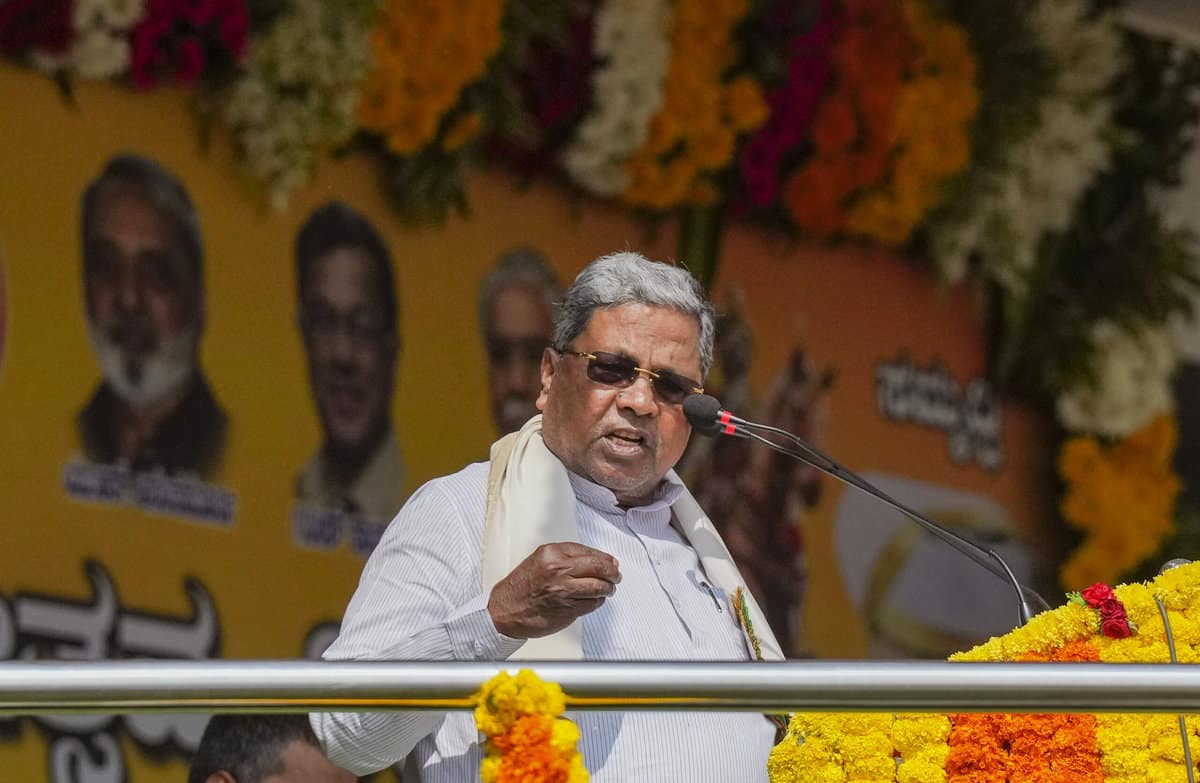
Karnataka Chief Minister Siddaramaiah on Friday said the restrictions on wearing hijab (head scarf) in educational institutions in the state will be lifted from December 23 and observed that choice of dress and food is personal.
“We will withdraw the hijab ban. Women can wear hijab and go. I have directed officers to withdraw the ban order. Choice of dress & food is personal. Why should I obstruct? Wear what you want. Eat what you want. I wear a dhoti, you wear a pants and shirt. What’s wrong with that? One mustn’t do politics for votes,” he said, while addressing a gathering in Mysore.
Lashing out at the BJP, Siddaramaiah said, “They say ‘Sabka Sath, Sabka Vikas’ (Cooperation of all, Development of all) but sidelining those wearing caps, burqa and sporting beard. Is this what they mean?”
When someone in the crowd asked about restrictions on wearing hijab, the CM said, “No (restrictions). You can wear Hijab. I have instructed (the officials) that there will be no restriction from tomorrow onwards. You can wear and eat whatever you want. It’s up to you.”
“… your choices are yours and my choices are mine. it’s that simple,” Siddaramaiah said amid the cheering crowd.
Affirming that the Congress party does not indulge in politics for votes, the chief minister said, “Congress government came to power to protect the rights of the poor, backward classes, Dalits and minorities. There is no question of compromising on this.”
Referring to the five guarantees of the government in Karnataka, Siddaramaiah said the benefits are available to people irrespective of their caste, religion and even “political ideology”.
“Even BJP supporters are availing the benefits and travelling in the bus free of cost. We never discriminate,” he added. Hijab was banned in educational institutions in the state during the BJP regime in 2022.
The ban on hijab in educational institutions was first imposed by the Bharatiya Janata Party (BJP) led government in the state in 2022.
The decision was legally challenged in the Karnataka High Court which upheld the ban stating that “wearing a hijab is not an essential religious practice of Islam” and that the uniform dress code should be followed in educational institutions where it is prescribed.
Background of the hijab row
The hijab controversy erupted and has been raging since December 2021, after students of a pre-university college in Karnataka’s Udupi were prohibited from wearing headscarves (hijab), as part of their religious obligation, on the college premises. The issue blew up after Hindu students turned up to their colleges wearing saffron scarves in a protest against hijabi Muslims being allowed to wear headscarves.
The state was forced to form a committee to decide on the issue and prohibited the students from wearing any religious garment, including the hijab until a decision is reached.
However, several protests by saffron-clad students and Muslims around the state forced the state to shut down schools and colleges for a few days.
Several petitions were filed in support of the hijab against the Karnataka government’s ban decision in the high court. However, on March 16, 2022, a bench headed by Chief Justice Ritu Raj Awasthi, Justice Krishna S Dixit, and Justice J M Khazi concluded that hijab was not an essential religious practice in Islam upholding the Karnataka government’s ban.



